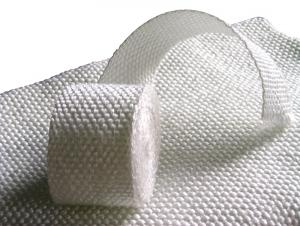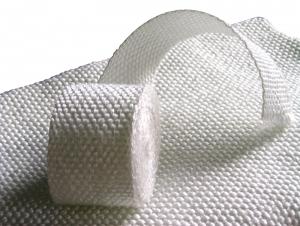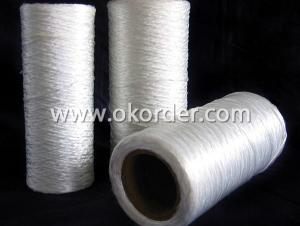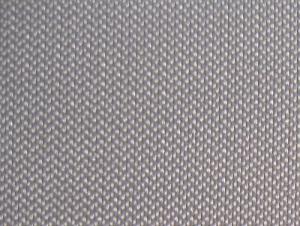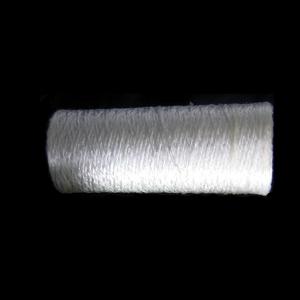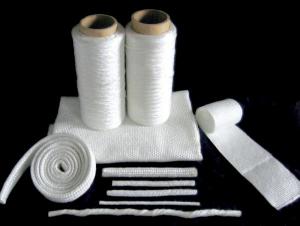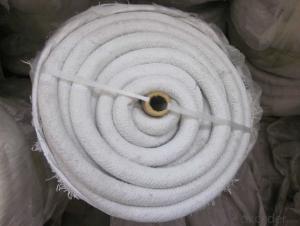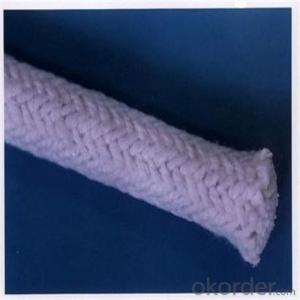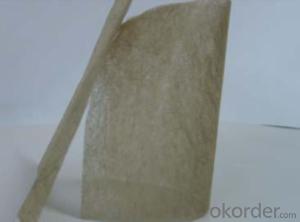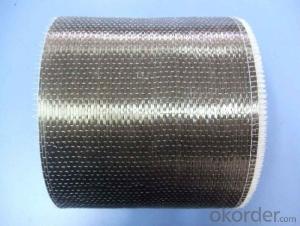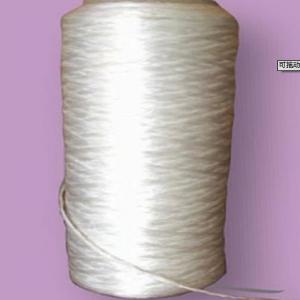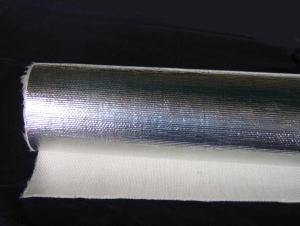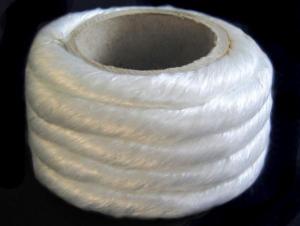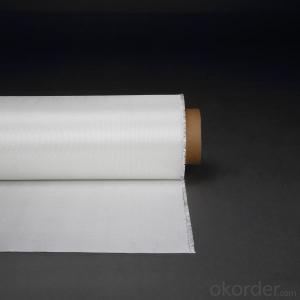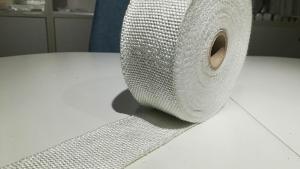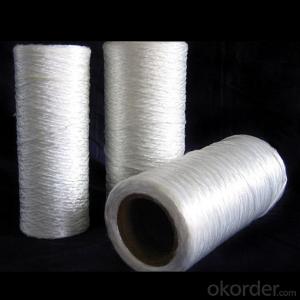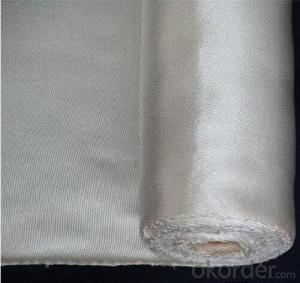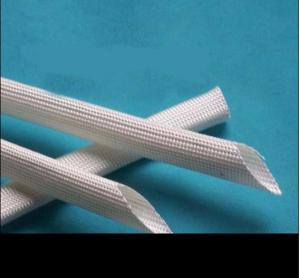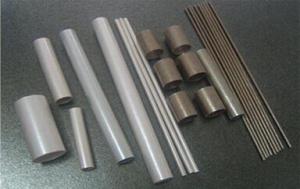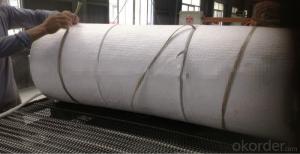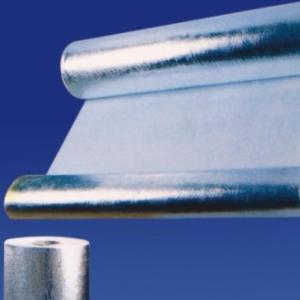Textured Fiberglass Adhesive Tape
- Loading Port:
- China Main Port
- Payment Terms:
- TT or L/C
- Min Order Qty:
- 5t kg
- Supply Capability:
- 2*/20FCL Per Month kg/month
OKorder Service Pledge
OKorder Financial Service
You Might Also Like
Basic info of Textured Fiberglass Adhesive Tape It is fabricated from high quality texturized C glass or Eglass fiber yarns that will not burn and will withstand continuous exposure to temperatures of 1022F/550C.
2. It resists most acids and alkalis and is unaffected by most bleaches and solvents.
3. It is an excellent substitute for asbestos tape.
4. Texturized fiberglass tape with copper wire, nickel wire or stainless wire are also available.
Applications of Textured Fiberglass Adhesive Tape:
1. All types of thermal insulation and heat protection provide of industrial wires, cables, hoses, tube and pipe and also provide thermal insulation and personnel protection.
2. Used as a gasket or seal.
Features of Textured Fiberglass Adhesive Tape
Good alkali resistance
High tensile strength and resistance to deformation
Excellent self-adhesiveness
Good smoothness
Convenient application in construction
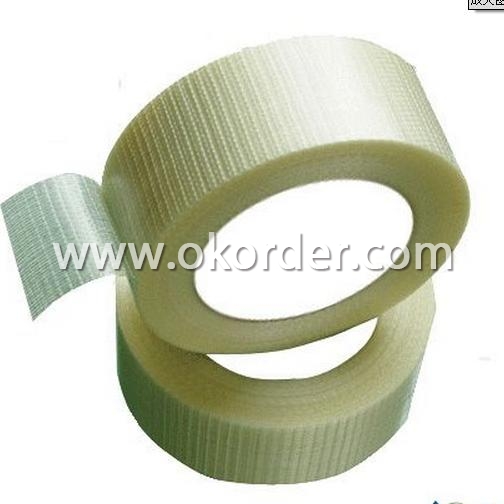
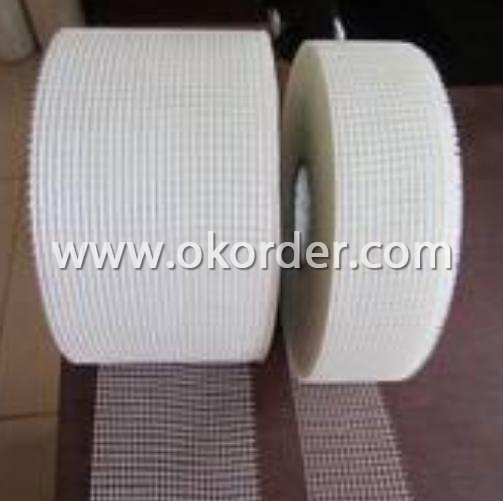
- Q:How does glass fiber textile perform in terms of moldability?
- Glass fiber textile excels in its ability to be molded. Its distinctive characteristics and arrangement enable effortless molding into intricate shapes. The interwoven glass fibers form a resilient and supple textile, which can be shaped into diverse designs and arrangements. Consequently, it serves as an optimal material for numerous applications, including automotive components, boat hulls, and architectural structures. Furthermore, the moldability and strength of glass fiber textile can be further enhanced by combining it with other substances, such as resins. In conclusion, glass fiber textile is exceedingly adaptable, offering exceptional versatility in terms of shaping and forming.
- Q:How does glass fiber textile perform in terms of thermal stability?
- Glass fiber textile is highly esteemed for its exceptional thermal stability, making it an ideal choice for applications involving extreme heat or fire. It remains intact and unaffected by high temperatures, without melting, shrinking, or emitting toxic gases. The outstanding thermal stability of glass fiber textile is primarily due to the unique properties of its glass fibers. Composed of inorganic materials, these fibers possess high melting points and low coefficients of thermal expansion. Consequently, they can maintain their structural integrity even when exposed to elevated temperatures. Industries such as aerospace, automotive, and construction commonly utilize glass fiber textile due to its critical requirement for thermal stability. It finds applications in insulation, fireproofing, and heat-resistant fabrics, ensuring enduring and dependable performance in harsh conditions. Furthermore, glass fiber textile exhibits minimal thermal conductivity, meaning it does not easily transfer heat. This characteristic makes it an effective insulator, preventing heat transfer from one side to the other. This insulation capability further enhances its thermal stability, maintaining a consistent temperature and safeguarding the surrounding environment from heat transfer. In conclusion, glass fiber textile excels in terms of thermal stability, with its ability to withstand high temperatures, maintain structural integrity, and provide heat insulation. It is a trusted material in various industries where thermal resistance is of utmost importance.
- Q:Can glass fiber textiles be used in automotive carpets?
- Yes, glass fiber textiles can be used in automotive carpets. Glass fiber textiles offer several advantages such as being lightweight, durable, and resistant to heat, chemicals, and wear. These properties make them suitable for use in automotive carpets where they need to withstand constant use, exposure to sunlight, and potential spills or stains. Glass fiber textiles can also provide insulation and soundproofing benefits, enhancing the overall comfort and performance of the automotive carpets. Additionally, glass fiber textiles can be easily molded and shaped to fit the contours of the vehicle's floor, ensuring a precise and seamless installation.
- Q:Can glass fiber textiles be used for making insulation materials in appliances?
- Yes, glass fiber textiles can be used for making insulation materials in appliances. Glass fiber textiles have excellent thermal insulation properties, high resistance to heat, and are non-combustible. They are commonly used in appliances such as ovens, refrigerators, and air conditioning units to prevent heat loss or gain, thereby improving energy efficiency.
- Q:Can glass fiber textiles be used in outdoor applications?
- Glass fiber textiles have the ability to be utilized in outdoor applications. These textiles are renowned for their durability and ability to withstand various environmental elements, making them suitable for outdoor use. Moisture, UV radiation, and extreme temperatures, which are frequently encountered in outdoor settings, do not pose a threat to glass fiber textiles. They are commonly employed in a variety of outdoor applications, including reinforcement in composites, insulation in buildings, and as protective covers for outdoor equipment. Furthermore, they possess exceptional dimensional stability and do not undergo stretching or shrinking when exposed to outdoor conditions. All in all, glass fiber textiles are a dependable choice for outdoor applications due to their robustness, durability, and resistance to environmental factors.
- Q:Are glass fiber textiles resistant to unraveling?
- Glass fiber textiles possess a high level of resistance when it comes to unraveling. Renowned for its superb ability to resist fraying or unraveling, glass fiber is an incredibly sturdy and enduring material. This can be attributed to the fact that glass fibers are composed of thin strands meticulously interwoven together to form a robust and cohesive fabric. The tightly woven structure guarantees that the individual fibers remain intact and are not prone to separation or unraveling. Additionally, glass fiber textiles are frequently treated with specialized coatings or finishes that further enhance their resistance to unraveling. In conclusion, glass fiber textiles are widely regarded as exceptionally resistant to unraveling, rendering them suitable for a multitude of applications where durability and longevity are paramount.
- Q:What is the cost of glass fiber textiles?
- The cost of glass fiber textiles can vary depending on various factors such as the type and quality of the textile, the quantity being purchased, and the supplier. On average, glass fiber textiles can range in price from $2 to $10 per square yard. However, it is important to note that these prices are approximate and can vary significantly. Additionally, specialized or custom-made glass fiber textiles may be priced higher. It is recommended to contact suppliers and request quotes to get accurate and up-to-date pricing information for specific glass fiber textiles.
- Q:Can glass fiber textiles be dyed or printed on?
- Yes, glass fiber textiles can be dyed or printed on. However, the dyeing or printing process for glass fiber textiles is quite different from that of natural or synthetic fabrics like cotton or polyester. Glass fiber textiles are typically made from woven or knitted glass fibers, which are then coated or impregnated with a resin or other synthetic material for added strength and durability. To dye glass fiber textiles, a special type of dye known as a "glass dye" is used. Glass dyes are specifically designed to bond with the synthetic coating on the glass fibers, ensuring colorfastness and longevity. The dyeing process usually involves immersing the textile in a dye bath or applying the dye using a spraying or dipping technique. It's important to note that achieving vibrant or intense colors may be more challenging with glass fiber textiles compared to natural or synthetic fabrics. Printing on glass fiber textiles follows a similar principle, where special inks or pigments are used to adhere to the synthetic coating on the fibers. However, the printing process for glass fiber textiles may require more specialized equipment and techniques, as the fibers can be more rigid and less flexible compared to other fabrics. In summary, glass fiber textiles can indeed be dyed or printed on, but it requires the use of specific dyes, inks, and techniques that are tailored to the unique properties of glass fibers.
- Q:Are glass fiber textiles resistant to mold and mildew?
- Yes, glass fiber textiles are resistant to mold and mildew.
- Q:Can glass fiber textiles be used as soundproofing material?
- Glass fiber textiles have proven to be highly effective as soundproofing material. Their exceptional sound absorption properties, resulting from their high porosity and ability to trap sound waves, are well-known. By using glass fiber textiles as soundproofing material, the transmission of sound can be significantly reduced as they absorb and dissipate the energy of sound waves. These textiles find application in various settings, including walls, ceilings, floors, and even the construction of soundproof curtains or panels. Moreover, glass fiber textiles are lightweight, easy to install, and possess a high fire resistance rating, making them a popular choice for soundproofing purposes in both residential and commercial buildings.
1. Manufacturer Overview |
|
|---|---|
| Location | Beijing, China |
| Year Established | 1992 |
| Annual Output Value | Above US$ 3 Million |
| Main Markets | North America;Southeast Asia ;Western Europe ;Middle East |
| Company Certifications | ISO 9001:2008 |
2. Manufacturer Certificates |
|
|---|---|
| a) Certification Name | |
| Range | |
| Reference | |
| Validity Period | |
3. Manufacturer Capability |
|
|---|---|
| a)Trade Capacity | |
| Nearest Port | Tianjing |
| Export Percentage | 60% - 70% |
| No.of Employees in Trade Department | 21-50 People |
| Language Spoken: | English; Chinese |
| b)Factory Information | |
| Factory Size: | Above 10,000 square meters |
| No. of Production Lines | Above 8 |
| Contract Manufacturing | |
| Product Price Range | High; Average |
Send your message to us
Textured Fiberglass Adhesive Tape
- Loading Port:
- China Main Port
- Payment Terms:
- TT or L/C
- Min Order Qty:
- 5t kg
- Supply Capability:
- 2*/20FCL Per Month kg/month
OKorder Service Pledge
OKorder Financial Service
Similar products
New products
Hot products
Hot Searches
Related keywords
